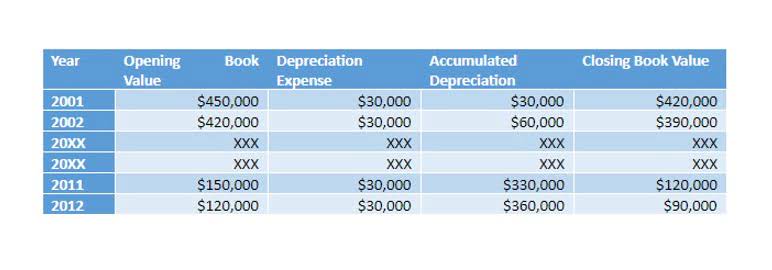
Make sure whatever tool you use integrates properly or choose an all-in-one software for both. Recording any money still in a trust account as income is a glaring error and is also against the rules. You may count funds in trust accounts as income until you have normal balance earned fees for services rendered. Accounting and financial management mistakes can threaten the well-being of any law firm.
Step 6: Streamline Time and Mileage Tracking
Law firms often choose to hire professional accountants or bookkeepers who understand things like client trust accounts so that everything with money stays safe and correct. Lawyers must make sure that every credit card payment, bank deposit, and financial report is right. Using careful record-keeping and trust accounting can help avoid problems like disbarment which happens when lawyers do not follow rules about money. This includes not only familiarity with trust accounting but also expertise in billable hours tracking, expense management, and adherence to compliance regulations concerning financial record-keeping. By tracking billable hours and expenses accurately, firms maximize revenue while maintaining client trust.
- Delayed payments can lead to late fees, interest charges, and strained vendor relationships, making it difficult to maintain positive interactions with suppliers and service providers.
- Accounting for Law has provided our bookkeeping services for our eight member law firm with offices in downtown Toronto and Bowmanville, Ontario, since 2013.
- The only way to avoid running afoul of financial laws and regulations is to have strong legal accounting and bookkeeping practices.
- Not only will you incur fines, but you could also lose your license or face legal repercussions.
- Meticulous record-keeping is vital in trust accounting to ensure compliance with regulatory requirements and protect the reputation of the firm.
- Set aside dedicated time each week to review financials and catch any discrepancies before they become major issues.
Types of Law Firms Accounting and How They Compare
Lawyers are required to deposit all short-term and nominal client funds in an IOLTA account. They mustn’t deposit client funds in accounts that do not bear interests, or in their business accounts. Although the roles of bookkeeping and accounting are different, there is a thin line to distinguish between them. You can go with an accrual or cash accounting method in the US, and the difference is mostly about timing.

Accounting Software for Law Firms
The best legal bookkeeping softwares for 2024 provide all of this and more, making it easier to manage client funds, streamline operations, and make informed financial decisions. Legal accounting is specialized accounting that caters specifically to the needs and regulatory requirements of law firms and legal professionals. It requires a thorough understanding of both financial principles and legal regulations to ensure accurate, ethical, and compliant financial management. Choosing the right accounting software for your law firm can significantly enhance your practice’s financial management and efficiency. When evaluating software options, focus on features that cater specifically to the unique demands of a legal practice.
Be prepared to perform a three-way trust reconciliation
This means they can focus on their clients and cases instead of worrying about the books. Furthermore, effective bookkeeping helps in managing cash flow, a critical factor for any bookkeeping for law firms business’s sustainability. By closely monitoring accounts receivable diligently, firms can ensure timely follow-ups on outstanding invoices, which is essential for maintaining positive cash flow. A law firm-specific chart of accounts is instrumental in efficient financial management. It should include specialized categories such as trust liabilities, client disbursements, and attorney reimbursements to provide a clear financial picture. Record reimbursed expenses separately from income to ensure proper financial tracking.
- Use automation tools within your legal accounting software to streamline data entry.
- It’s easier to spot opportunities and potential problems and take effective, appropriate action if you regularly read your law firm accounting reports.
- The act of “bookkeeping” produces financial statements, which your CPA then uses to file your taxes.
- Firms must maintain separate trust accounts for client money and earned fees.

Trust accounting is a fundamental aspect of legal bookkeeping, requiring rigorous compliance and meticulous tracking of client funds. Law firms must distinguish between trust and operation accounts to ensure compliance with legal and ethical standards. Modern law firms rely on specialized software and tools to manage their finances efficiently. These solutions streamline accounting processes, ensure compliance, and integrate with existing practice management systems. Regular audits and reconciliations are critical components of law firm financial management.

This technology not only simplifies the management of client funds but also offers advanced reporting and analytics features that provide valuable insights for enhancing law firm operations. Failing to make this distinction can lead to compliance issues and inaccurate financial records, impacting the firm’s reputation and potential for growth. Proper accounting for law firms is crucial for compliance with regulatory requirements, ensuring business growth, and protecting the firm’s reputation. Failure to maintain accurate financial records can lead to legal and ethical consequences. Navigating the complexities of legal bookkeeping can be both challenging and rewarding.
- These retainers must be tracked carefully and only moved to operating accounts when earned.
- Consistent and accurate bookkeeping tasks should be carried out according to a set schedule, whether daily, weekly, or monthly.
- Every entry to an account requires a corresponding and opposite entry to a different account.
- This responsiveness not only strengthens compliance efforts but also positions the firm as a reliable entity in the eyes of clients, partners, and stakeholders.
- Use a dedicated business checking account and business savings account exclusively for firm operations.
Recording Trust Accounts as Income
Total assets are also required to equal total liabilities plus equity (net worth or capital) of a law firm). With the accrual method, you record revenue when it’s earned and expenses when they’re incurred—whether they’re paid right away or not. This Accounting Security creates a better matching of costs to the revenues earned in a given month or year. It allows for more meaningful financial management that isn’t influenced by the ups and downs of cash flow.

Learn more about Bench, our mission, and the dedicated team behind your financial success. If you’re a lawyer in Texas, check out our comprehensive guide, What You Need to Know About IOLTA Accounts in Texas.
